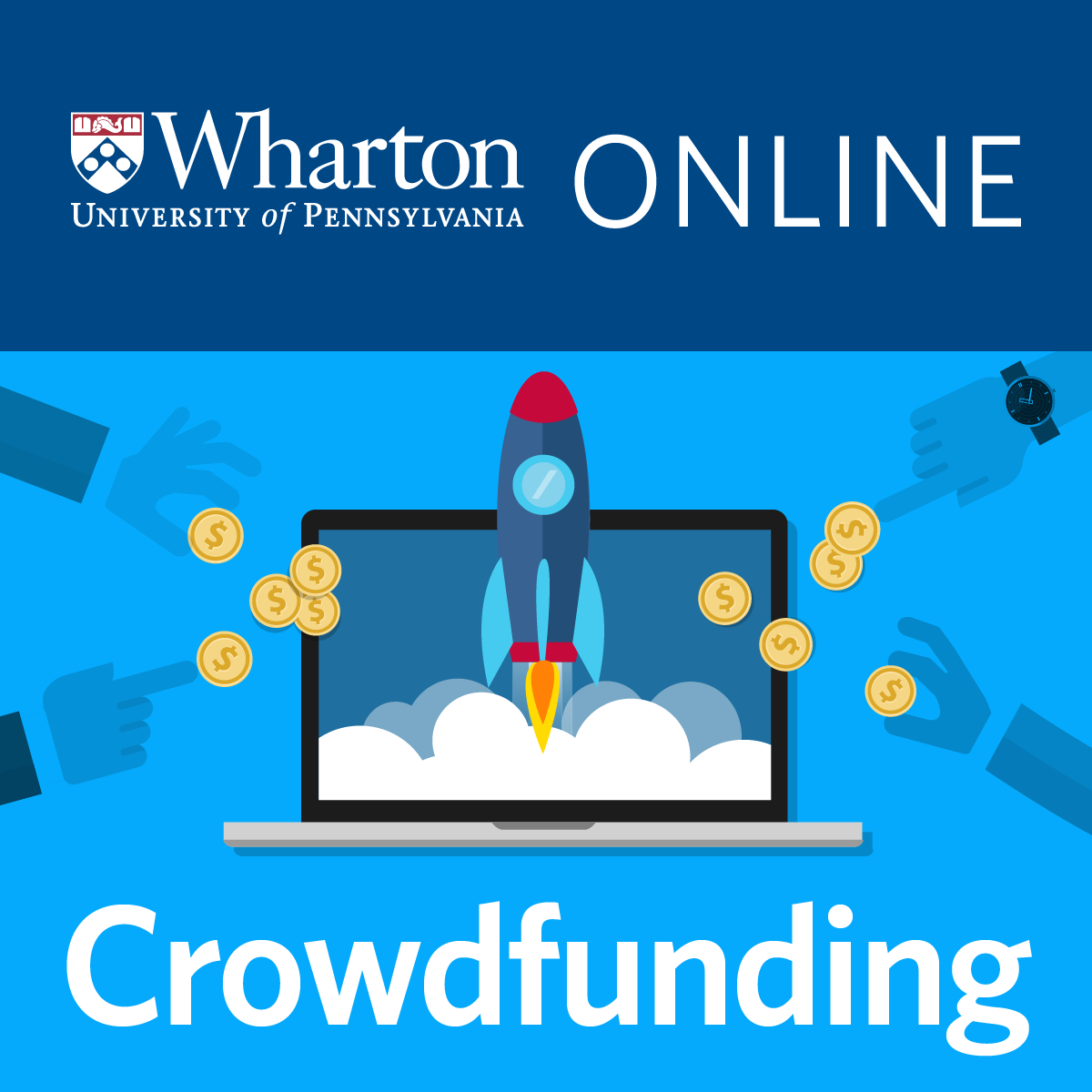Back to Courses









Entrepreneurship Courses - Page 16
Showing results 151-160 of 222
3D Printing Software
This course will demonstrate how to use 3D printing software to create digital designs that can be turned into physical objects. It will also demonstrate how 3D scanners work to turn physical objects into digital designs. This course is hands-on in nature and will provide step-by-step instructions to guide you through two popular 3D modeling programs, Tinkercad and Fusion 360. Learners who complete this course will be able to use 3D software to design a wide variety of objects for both personal and professional use. In addition, learners who enroll in the course certificate will receive extended free access to Fusion 360 (provided by Autodesk).
Please copy/paste the following links to your browser's search bar to view the requirements for each of the following software elements used in this course:
Sketchbook: https://support.sketchbook.com/hc/en-us/articles/209671938-SketchBook-Desktop-System-Requirements
Tinkercad: https://support.tinkercad.com/hc/en-us/articles/205849108-What-are-Tinkercad-s-Browser-and-Platform-requirements-
Autodesk Fusion 360: https://knowledge.autodesk.com/support/fusion-360/troubleshooting/caas/sfdcarticles/sfdcarticles/System-requirements-for-Autodesk-Fusion-360.html
Sketchfab: https://help.sketchfab.com/hc/en-us/articles/203059088-Compatibility
123D Catch: Same as Tinkercad

Capstone - Launch Your Own Business!
It is a cliché, but nevertheless very true. Experience is the best teacher. It is also the best confidence builder. It is time for you to take action! The concepts and skills presented throughout the courses in the specialization are applied in this capstone course where you will launch an actual business.
It will not be a business concept described on paper, but a functional business with legal status in your particular governmental jurisdiction, developed within your available resources whatever they are, and challenged to generate revenue.
One of the greatest benefits of this specialization is the business development environment provided by the population of learners. At the point of the capstone course your thousands of fellow learners become consultants capable of refining and adding value to your business concept, they may also be potential customers or at the very least allow you to observe the likely reactions from potential customers.
With the experience of launching this startup, and the execution capabilities and confidence gain from that experience it is our desire that you repeat the process and launch another startup or a bigger version of this startup. Hopefully going on to launch another, and another, and another, evoking another cliché, 'practice will make perfect'.

Fundamentals of Funding, with Goldman Sachs 10,000 Women
This free online course is one of 10 courses available in the Goldman Sachs 10,000 Women collection, designed for entrepreneurs ready to take their business to the next level.
In this course, you will learn how to finance business opportunities that lead to growth, by exploring different types of funding. You will learn how acquisition financing and funding applications for grants or loans can support and expand your business opportunity. You will evaluate your business’s financial profile and plan actions to improve it.
The exercises will guide you through discovering potential types of funding for your business and help you to identify the information you may need for future funding requirements.
By the end of the course, you will understand the importance of having a financial strategy and approaching funding strategically – applying the skills you have developed to make a good funding application to facilitate your business growth.
If you are unsure of your future cash flow needs, you may wish to complete one of the other Goldman Sachs 10,000 Women courses, ‘Fundamentals of Financial Planning’, to predict financial challenges, so that you can make strategic choices for your business.
The 10,000 Women course collection offers a truly flexible online learning experience. You have the freedom to approach the program in any way that works for you – take any course, or combination of courses, to tailor your learning journey to your individual business growth needs. If you choose to take all 10 courses, you will explore all the key elements of your business and develop a thorough plan for your business’s growth.
You can find out more about the Goldman Sachs 10,000 Women collection in the FAQs.

Healthcare Innovation: What Does Success Look Like and How to Achieve It?
This course focuses on the factors involved in the adoption of innovation - features, organizations, country of origin, cognitive, normative and affective aspects, change agents. Using real-world health innovations, you'll assess what impacts their scaleability to new contexts, how organizational and human characteristics affect adoption, to what extent diffusion of an innovation is influenced by unconscious bias. You'll also delve into the process of adopting an innovation within a clinical setting and why it's so important to know who your 'change agents' are. As started in the second course of this specialisation, Healthcare Entrepreneurship: Taking Ideas to Market, you'll revisit the skill of pitching, exploring why and how to adapt pitches depending on your audience.
By the end of this course, you'll feel able to judge the success of innovation projects; analyse how organizational structure, culture and resources are key in adoption; make recommendations for adoption in relation to organizational contexts; demonstrate how cognitive, normative and affective aspects can influence perception regarding an innovation's attractiveness and scaleability; and apply persuasive techniques to connect to audiences involved in the process of innovation scaling and adoption.

Protect and Grow Your Freelancing Business
The fourth course in the Building Your Freelancing Career specialization includes an overview of laws surrounding freelance work and how to navigate them, how to prepare for taxes, intellectual property considerations, and how to protect one's work through legally sound contracts and agreements.
CalArtians who do not see a "Sponsored by CalArts" notice when enrolling are encouraged to access this course and the specialization by joining through the Coursera for CalArts program linked in the course/specialization FAQ.

Crowdfunding
Crowdfunding, the practice of raising small amounts of money from large numbers of people, has enabled people around the world to start new businesses, fund initiatives, and raise money for themselves and others. Yet, not all crowdfunding efforts reach their desired goal. Why do some succeed, while others fail? This course will reveal the science behind successful crowdfunding, drawing on data from hundreds of thousands of campaigns. You’ll learn different types of crowdfunding approaches, and receive detailed advice on what to do (and what not to do) when crowdfunding. You’ll also have the unique opportunity to go behind-the-scenes with key players in the field with exclusive interviews from the founder of Indiegogo to successful campaign creators, to get the information you need to set your crowdfunding initiative up for success.

Crafting Strategies for Innovation Initiatives for Corporate Entrepreneurs
This course focuses on enhancing your understanding of (1) how an internal venture is organized and (2) how to overcome resistance to your new venture ideas within the company. The course is specifically valuable for:
• Employees who have creative ideas important to their company;
• Managers seeking to assemble creative people and resources;
• Technical specialists desiring to become part of an internal venture; and
• Consultants who advise companies on ways to launch and grow internal ventures.
You will learn strategies to help you launch a corporate venture with coursework focused on four key areas:
• Examining how to audit a company's internal environment to establish a framework for its innovation capabilities;
• Creating a plan for an organizational structure and operational format that incorporates key roles and players for internal ventures within the company;
• Analyzing corporate culture to identify creative capabilities that leverage the company's best practices for innovation;
• Evaluating innovation portfolios and compose innovation strategies that are best aligned with the implementation potential within the company.
Try this course for FREE at https://www.coursera.org/learn/corporate-entrepreneurs-innovation-strategy

Entrepreneurial Strategic Management
This course utilizes an inquiry based approach to understanding sources of competitive advantages in companies and other organizations.

Developing An Entrepreneurial Mindset: First Step Towards Success
This course is the first in a series on starting a business. Though new venture creation is the focus of the specialization, this course is important for everyone.To create a successful business it is not only about what you do (technical execution), it is also about how you think. This course provides learners with insights to re-frame their thinking in order to maximize their chances for success.
So what can a learner expect to gain from this course? At the end of this course a learner:
1.) will be able to argue effectively against all of the reasons for not starting their business (or reaching some goal);
2.) will be able to operate effectively within the new framework or model for starting a business (or any new endeavor),
thus increasing their chances for success; and
3.) will be able to make the initial business startup decisions of what type of business to start, and what type of business
owner to be.
Having an entrepreneurial mindset is critical to being successful as an entrepreneur. An entrepreneurial mindset stands alone in terms of its importance. No other attribute, personality, inherent entrepreneurial proclivities, training, or demographic profile is common to all successful entrepreneurs whether Warren Buffet, Steve Jobs, or the neighborhood florist or grocer.
The course provides learners with an understanding of the attributes and perspectives of an entrepreneurial mindset, and the process to acquire one. We suggest that learners bring an open mind and be willing to thoroughly explore the nascent business ventures they have been carrying with them.The course introduces concepts that enables a person to start a trans-formative process in the way they think generally, and in the way they think about business specifically. This new way of thinking has the potential to positively impact not only them, but their family, and community.

Introduction to Enterprise Growth and Innovation
This course is best suited for individuals currently in the healthcare sector, as a provider, payer, or administrator. Individuals pursuing a career change to the healthcare sector may also be interested in this course.
The course explores the challenges and processes for harnessing technological innovation for new-business development, with special focus on digital healthcare transformation. You will gain an understanding of enterprise growth and innovation topics through readings, cases, and exercises, including learning how firms from different industries gain competitive advantage through distinctive products and services. The vast expertise of faculty combined with topic perspectives from the Mayo Clinic make this an engaging and unique course.
Upon successful completion of this course, you will be able to:
Identify the innovation challenges and opportunities faced by healthcare organizations in order to develop a fundamental framework for growth
Segment organizations’ opportunities for innovation and growth based on different types of external (patients) and internal users (staff), as well as by use cases (the diseases to be treated or managed, or the internal work processes to be performed)
Define the focus of an innovation for effective user-centered design
Popular Internships and Jobs by Categories
Find Jobs & Internships
Browse
© 2024 BoostGrad | All rights reserved